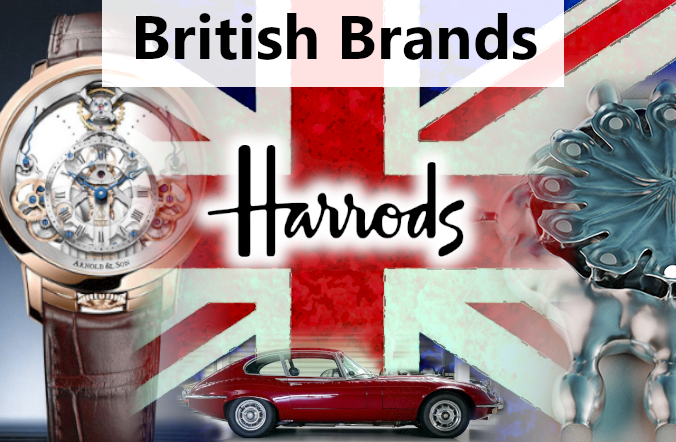
Sections in this article:
The Origins Of The Concept Of Branding Businesses
Britain As An Industrial Power
What British Brands Are Known For
British Luxury And Fashion Brands
Traditional British Watchmakers
Unconstrainedtime As An Unusually Unique British Micro Brand.
Introduction
This article looks at the concept of branding businesses, and Britain as an industrial power. Then we look at British brands in general, highlighting the history, development and character of early, famous, luxury and fashion, heritage and innovative British brands, and what they are known for around the globe.
We then look at British watch brands, both traditional and innovative, including our own unique British brand of very individual timepieces.
The Origins Of The Concept Of Branding Businesses
The origins of branding businesses can be traced back to ancient times when craftsmen, producers, and traders marked their products to differentiate them from the competition and signify their origin, quality, or ownership.
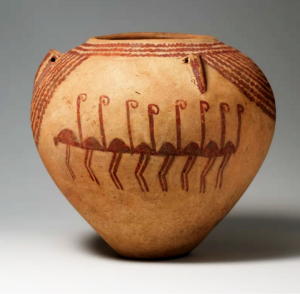
One of the earliest forms of branding dates to ancient Egypt around 2700 BC, where pottery makers inscribed their work with hieroglyphs or symbols representing their craftsmanship. Similarly, ancient Greeks and Romans branded their pottery, indicating the place of origin and craftsmanship.
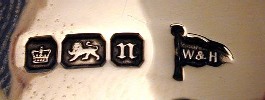
Medieval European guilds used marks or symbols to distinguish their products and establish accountability for quality and standards. These marks, called ‘hallmarks’ were commonly used in metalwork, verifying the quality and source of precious metals. They are still important in the UK, being a legal requirement on any piece made of gold, silver or platinum which intends to be marketed as such.
During the Industrial Revolution in the 18th and 19th centuries, the rise of mass production and increased competition led to trademarks and logos becoming common. Companies began registering their logos to safeguard their products against imitations and to build recognition among consumers.
The late 19th and early 20th centuries saw the emergence of modern branding strategies with the advent of advertising and mass marketing. Pioneers like Coca-Cola and Kellogg’s utilized branding to create strong emotional connections with consumers, associating their products with particular lifestyles or values.
Since then, branding has evolved into a multidimensional practice, encompassing not just logos and trademarks but also encompassing a company’s ethos, values, customer experience, and storytelling. It remains a fundamental aspect of business, playing a pivotal role in shaping consumer perceptions and fostering brand loyalty in today’s competitive market landscape. We’ll have a look at examples of some of the best British brands, below, but first, the context behind most British brands today . . .
Britain As An Industrial Power
Britain’s ascent as an industrial powerhouse during the 18th and 19th centuries marked the start of a transformative era in human history, known as the Industrial Revolution.
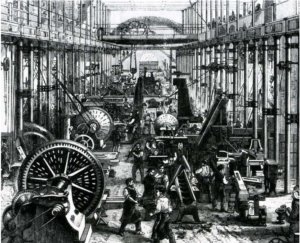
The Industrial Revolution was propelled by several interconnected factors. Technological innovations, like the spinning jenny and steam engine, revolutionized production. Abundant natural resources, particularly coal and iron, provided the fuel and materials for industrial growth.
Capital accumulation from trade and colonialism offered investment opportunities and it is notable that trust in the government was a key factor. In Britain, where people trusted the government enough to keep their money in banks, because they knew the government would get them at least some of their money back if the bank collapsed. That allowed banks to lend out that money to entrepreneurs wanting to start businesses. By contrast, at the same time in history, French people kept their money in their mattress, so it was not available to businesses, because they didn’t trust their governments enough to keep it in a bank.
Other factors which were involved in the industrial revolution having its origins in Britain included improved transportation, such as canals and railways, which facilitated the movement of goods. These elements encouraged entrepreneurship and innovation, culminating in the profound societal shift towards mechanized manufacturing, later transforming other economies and societies across the globe.
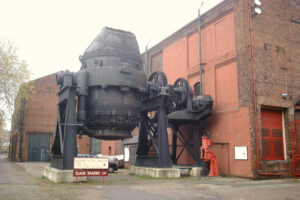
The development of iron and steel production techniques, notably the Bessemer process, catalyzed construction, infrastructure, and the manufacturing of machinery, underpinning further industrial advancements.
Britain’s expansive colonial empire provided access to more raw materials and markets, augmenting its economic prowess.
By the 19th century, Britain had become the world’s first industrialized nation, wielding immense global influence through its technological innovations, manufacturing capabilities, and economic supremacy, laying the groundwork for modern industrial societies and shaping the trajectory of global progress.
The First British Brands
British brands have a rich history steeped in tradition, dating back centuries. Among the earliest British brands, several have stood the test of time, shaping industries and consumer culture globally.
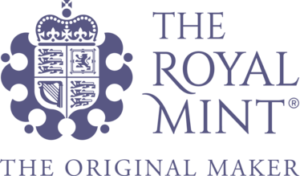
The Royal Mint is the oldest company in the UK, and is over 1,100 years old. The UK’s proud history of economic excellence arguably began over 1,100 years ago in 886 with the foundation of the Royal Mint, which still makes coins for the UK, and for export, to this day.

Cambridge University Press, the oldest publishing company in the world, was started in 1534 by Henry VIII.
Barclays Bank was founded in 1690 and is still operating today.
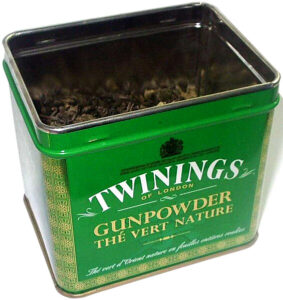
Established in 1706, Twinings remains one of Britain’s oldest tea brands. Known for its exceptional quality and diverse range of teas, Twinings has played a pivotal role in popularizing tea-drinking habits across the globe. They also have the oldest British company logo which has not been changed at all since its founding.

Another venerable brand, Fortnum & Mason, commenced its journey in 1707 as a high-end grocery store. Renowned for its luxury hampers, teas, and exquisite food items, it has retained its reputation for sophistication and indulgence through the ages.
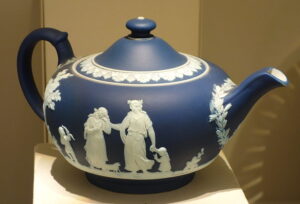
Wedgwood, established in 1759, revolutionized pottery with its intricate designs and quality craftsmanship, becoming synonymous with luxury and refinement.

Burberry, originating in 1856, revolutionized the fashion world with its iconic trench coats. Synonymous with British elegance, their distinctive check pattern and timeless designs continue to be a quintessentially British luxury brand.
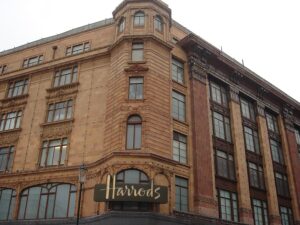
The Victorian era fostered the growth of established department stores like Harrods (founded in 1834) and Selfridges (opened in 1909), setting new standards in retail and customer service, and are now famous globally
Founded in 1865, John Lewis began as a small drapery shop and has since evolved into a renowned department store chain, admired for its commitment to quality, customer service, and the co-ownership model. They have also owned Waitrose supermarkets, since 1937, well known and loved in the UK for quality foods.
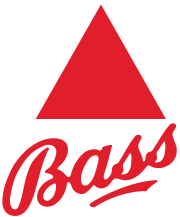
The first officially registered brand name is believed to be Bass & Co.‘s red triangle for Bass Pale Ale, registered in 1876.
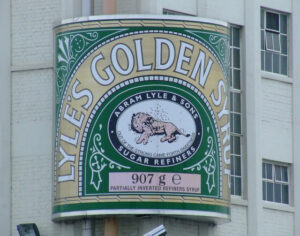
Tate & Lyle’s Golden Syrup, which has not changed much since 1885, is in the Guinness World Records book as the oldest British brand, although I am not sure exactly how they define themselves as the “oldest British brand” in the context of the other information presented here about brands which would seem to have a claim on being older.
These brands reflect the enduring legacy of British craftsmanship, innovation, and entrepreneurial spirit. In the next section we’ll look into what British brands are known for, around the world, with several outstanding examples . . .
What British Brands Are Known For
British brands have long been synonymous with quality, craftsmanship, and rich heritage, earning global recognition across various industries.

Mulberry, founded in 1971, represents quintessential British luxury in leather goods. The brand’s dedication to traditional craftsmanship and timeless designs, notably the Bayswater handbag, showcases enduring quality and style.
Established in 1826, Clarks has been a cornerstone of British shoemaking. Revered for its comfort and craftsmanship, Clarks’ iconic Desert Boot and Wallabees have become timeless classics, embodying quality and heritage as a high-street brand.
Established in 1882, John Smedley is renowned for its fine knitwear. Using luxurious materials like merino wool, the brand’s craftsmanship and commitment to quality have made it a symbol of British elegance.

The luxury pen manufacturer, Parker, founded in 1888, has crafted exquisite writing instruments for over a century. Its dedication to precision engineering and innovative designs reflects a legacy of quality and sophistication.
Some well-known “British brands” are now actually owned outside the UK. For example:
Branston Pickle, very well-known in England, was acquired by Mizkan, for £92.5 million ($147 million).
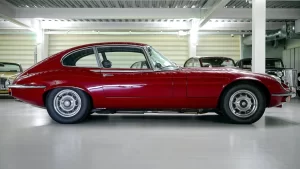
Iconic British car brand Jaguar was bought by India’s Tata in 2008. Before that it was owned by Ford, who are based in Detroit, Michigan, US.
Manchester United, probably the most famous British football team globally, is now owned by the Glazer family of the US.
Cadbury is the UK’s best-known British chocolate maker. It was bought by Kraft in 2010 and is now incorporated into Mondelēz International, a US company.
Tetley, a British tea maker, has proudly advertised its English heritage for decades. However, it is actually owned by India’s Tata Global Beverages.
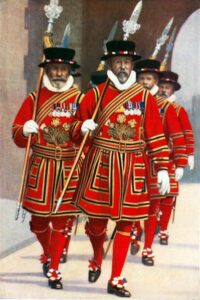
For many people around the world, Beefeater Gin is synonymous with London and the Tower, but it is now controlled by the French group Pernod Ricard.
What could be more British than Thames Water? It is actually now owned by the Macquarie Group of Australia.
Iconic British Brands
Iconic British brands encapsulate a heritage of excellence, craftsmanship, and innovation, leaving an indelible mark on global culture and commerce across various industries.
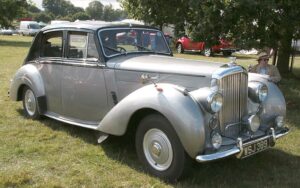
Bentley, established in 1919, epitomizes British automotive luxury. Renowned for its handcrafted cars, each vehicle represents the pinnacle of craftsmanship, performance, and design, reflecting a heritage of excellence as well as . Queen Elizabeth II of England was seen most often being driven in a Bentley. They’ve released successful new models in recent decades.
Burberry (see their logo above), founded in 1856, stands as a global luxury brand synonymous with British heritage. The iconic trench coat, adorned with the distinctive check pattern, showcases timeless style and sophistication, while the brand’s evolution into fashion and accessories continues to captivate global audiences.
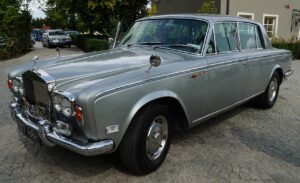
Rolls-Royce, founded in 1904, is an embodiment of British automotive prestige. Its luxury vehicles, synonymous with opulence and engineering brilliance (working to much finer tolerances than other car manufacturers), cater to an elite clientele seeking unparalleled craftsmanship and refinement.
Jaguar, established in 1922, evokes a legacy of sleek design and automotive innovation (an image of their iconic E-type, is above). Known for combining luxury and sports performance, Jaguar continues to captivate enthusiasts worldwide with its blend of elegance and performance.

Land Rover, originating in 1948, is synonymous with robustness and off-road capability. The brand’s iconic vehicles, such as the Defender and Range Rover, represent the pinnacle of luxury and capability in the SUV segment.
Barbour, founded in 1894, embodies British heritage in outerwear. Renowned for its durable waxed cotton jackets, Barbour merges functionality with classic design, remaining a staple in both country attire and urban fashion.

Dr. Martens, originating in 1947, is celebrated for its iconic boots that transcend generations. Known for their durability, comfort, and distinctive style, Dr. Martens footwear became a symbol of rebellious individuality from the ’70’s onwards.
Mulberry, established in 1971, epitomizes British luxury in leather goods. The brand’s dedication to craftsmanship and timeless designs, notably the Bayswater handbag, signifies understated elegance and quality.
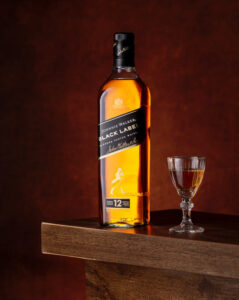
Johnnie Walker, originating in the 19th century, is a global icon in whisky. The brand’s commitment to exceptional blends and its iconic striding man logo symbolize progress, perseverance, and the pursuit of excellence.
The Virgin Group, founded by Richard Branson, encompasses various ventures across sectors like travel, telecommunications, and entertainment. Virgin’s innovative and customer-centric approach has led to iconic brands such as Virgin Atlantic, Virgin Mobile, and Virgin Records.
These iconic British brands showcase a legacy of innovation, quality, and craftsmanship, influencing consumer preferences and setting benchmarks in their respective industries. Their enduring success and global recognition underscore the profound impact of British heritage and ingenuity on the world stage.
British Luxury And Fashion Brands
British luxury brands exude a legacy of elegance, craftsmanship, and exclusivity, captivating discerning consumers worldwide with their exceptional quality and timeless allure across various industries.
These include Burberry, Rolls-Royce, Bentley, and Jaguar, mentioned above
Globally recognized for its luxury goods, Harrods (also mentioned above) is a pinnacle of opulent shopping experiences. Founded in 1834, the department store is synonymous with exclusivity, offering an array of high-end products, from fashion and accessories to gourmet foods and fine jewelry.
Garrard, founded in 1735, holds a prestigious position in the world of luxury jewelry. As the oldest jewelry house in the world, it has crafted exquisite pieces for royalty and high society, representing heritage, craftsmanship, and exquisite design.
British luxury fashion brands epitomize a blend of heritage, innovation, and timeless elegance, setting global benchmarks for sophistication and style across the fashion landscape.
Alexander McQueen, founded by the eponymous designer in 1992, redefined haute couture with its avant-garde designs. McQueen’s daring creativity, combined with meticulous craftsmanship, created a legacy of edgy glamour and exquisite tailoring that continues to influence the fashion world.
Founded in 1851, Aquascutum is celebrated for its elegant, weatherproof outerwear. The brand’s heritage trench coats and innovative fabrics have adorned royalty and style icons, exemplifying British craftsmanship and understated luxury.
Vivienne Westwood, emerging in the 1970s, brought punk aesthetics to high fashion. Renowned for her rebellious spirit and unique designs, Westwood’s brand embodies a fusion of tradition, activism, and avant-garde couture, pushing boundaries in fashion.
J.W. Anderson, established in 2008, is recognized for its modern, gender-fluid designs. The brand’s innovative approach to fashion challenges conventional norms, reflecting a blend of British heritage and contemporary aesthetics.

Stella McCartney, founded in 2001, pioneers sustainable luxury in fashion. Known for ethical practices and cruelty-free designs, McCartney’s brand embodies modern luxury with a commitment to environmental responsibility. They are a great example of a luxury British brand.
Burberry’s trench coats, Alexander McQueen’s avant-garde creations, and the diverse styles of Vivienne Westwood showcase the breadth and depth of British luxury fashion. Their dedication to craftsmanship, innovation, and distinctive aesthetics continues to captivate fashion connoisseurs globally, solidifying their positions as icons in the world of luxury couture.
British Heritage Brands
British heritage brands embody a legacy of tradition, craftsmanship, and timeless appeal, reflecting centuries of excellence and cultural significance across various industries.
Barbour, established in 1894, represents quintessential British heritage in outerwear. Renowned for its waxed cotton jackets, the brand seamlessly blends functionality with classic design, embodying durability and style rooted in rural traditions.
Established in 1882, John Smedley represents British heritage in fine knitwear. Crafting luxurious garments from premium materials like merino wool, the brand’s craftsmanship and commitment to quality symbolize British elegance and sophistication.
Mackintosh, founded in 1823, stands as a stalwart in British heritage outerwear. Pioneering waterproof fabrics and classic designs, Mackintosh coats represent a legacy of craftsmanship and functionality that has endured for centuries. Their brand-name was once synonymous with a waterproof overcoat, but is less well known by younger generations.
Mulberry, founded in 1971, represents modern British heritage in luxury leather goods. The brand’s dedication to traditional craftsmanship and timeless designs, notably the Bayswater handbag, embodies understated elegance and quality.

Twinings, established in 1706, stands as a heritage brand in tea. With centuries of expertise, Twinings’ commitment to quality and innovation has made it an integral part of British tea culture, maintaining its reputation as a purveyor of fine teas.
These British heritage brands, with their enduring commitment to quality, tradition, and timeless appeal continues to resonate with consumers globally, solidifying their positions as icons of British heritage and excellence.
Innovative British Brands
Britain has a rich history of innovation across various industries, with numerous pioneering brands that have reshaped markets and set global benchmarks through their ingenuity, creativity, and forward-thinking approaches.

Dyson, founded by Sir James Dyson in Malmesbury in 1991, revolutionized household appliances with its bagless vacuum cleaner. Dyson’s relentless pursuit of innovation, epitomized by its patented cyclonic technology, transformed the vacuum cleaner industry, setting new standards in performance and design.

Revolut, established in 2015, is a fintech unicorn that has revolutionized banking. Offering innovative financial services through its app, including international money transfers and cryptocurrency trading, Revolut has disrupted traditional banking models, emphasizing user-centric solutions and flexibility.
Oculus, although later acquired by Facebook, was co-founded by British entrepreneur Palmer Luckey. Oculus introduced groundbreaking virtual reality (VR) technology, igniting the modern VR industry and transforming entertainment, gaming, and various other fields.

In the realm of fashion technology, Farfetch, founded in 2007, disrupted luxury e-commerce by creating a platform connecting consumers with boutiques and luxury brands globally. Farfetch’s innovative approach to online retailing and its focus on unique and curated shopping experiences have redefined luxury fashion retail.
Oxford Nanopore Technologies, founded in 2005, is a leader in nanopore sequencing technology. The company’s portable DNA sequencers enable rapid and real-time genetic analysis, transforming genomics research, diagnostics, and applications in various fields, including healthcare and environmental science.

ARM Holdings, established in 1990, pioneered mobile computing technology, designing microprocessors used in smartphones and tablets worldwide. ARM’s innovative chip architecture revolutionized the mobile industry, enabling high-performance and energy-efficient devices.
These innovative British brands represent a legacy of forward-thinking entrepreneurship, technological breakthroughs, and disruptive solutions that have shaped industries globally. Their commitment to innovation continues to propel progress, redefine markets, and influence the trajectory of technology, finance, healthcare, and beyond on a global scale.
Traditional British Watchmakers
The British watchmaking industry boasts a rich heritage and a collection of traditional, retro, and vintage-inspired brands that pay homage to craftsmanship, timeless designs, and historical aesthetics. While not all these brands manufacture their timepieces exclusively in the UK, their designs and commitment to British heritage stand out prominently in the horological world.
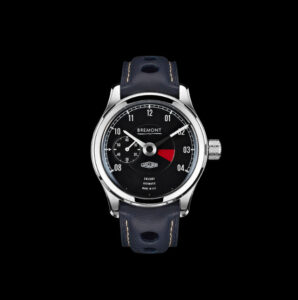
Founded by brothers Nick and Giles English in 2002, Bremont embodies the essence of British heritage in watchmaking. Known for its aviation-inspired designs, Bremont creates timepieces reflecting traditional craftsmanship and robust engineering. Their models, such as the ALT1-C, capture a vintage aesthetic with modern technology, appealing to enthusiasts seeking a classic yet functional watch.
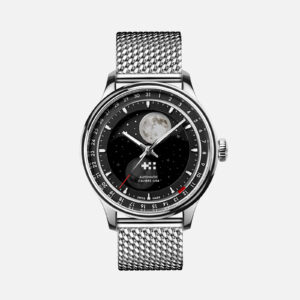
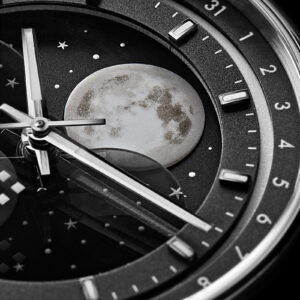
Established in 2004, Christopher Ward focuses on producing affordable luxury watches that blend British design with Swiss precision, such as the C1 Moonglow shown above. Their timepieces, like the C65 Trident Vintage or the C1 Grand Malvern, often exhibit a retro-inspired design, emphasizing elegance and refined craftsmanship. One of their watches features in our blog post about unusual watches.
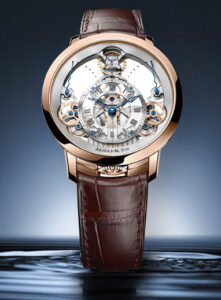
Dating back to the 18th century, Arnold & Son was revived in 1995 and currently produces haute horlogerie watches. While the brand’s roots trace back to John Arnold, a notable British watchmaker, their modern creations, such as the DSTB or the HMS1, pay homage to the brand’s historical designs, incorporating vintage elements and exceptional craftsmanship.
Garrick Watches: A relatively newer addition to British watchmaking, Garrick Watches crafts timepieces that encapsulate traditional watchmaking techniques. Models like the Portsmouth or the S2 exemplify vintage-inspired designs, incorporating hand-finishing and attention to detail reminiscent of classical watchmaking.
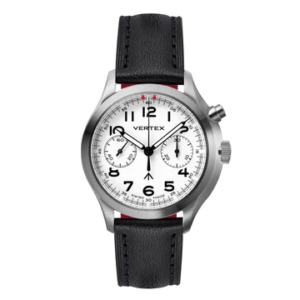
Revived in 2016 after being dormant since the mid-20th century, Vertex revisits its military heritage with modern interpretations. Their M100 series draws inspiration from historical Vertex military watches, retaining vintage aesthetics while incorporating contemporary engineering and craftsmanship.
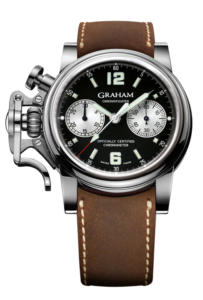
Known for its bold designs and oversized timepieces, Graham watches pay tribute to British horological history. Their Chronofighter models, with their distinctive trigger pusher and vintage-inspired dials, evoke the spirit of aviation watches from the past.
These British watch brands showcase a commitment to traditional craftsmanship, timeless designs, and an appreciation for vintage aesthetics. Their dedication to preserving horological heritage while infusing modern engineering and technology cements their status as notable contributors to the global watchmaking industry, catering to enthusiasts who appreciate the blend of vintage charm and contemporary functionality.
Innovative British Watches
Britain’s watchmaking landscape encompasses a spectrum of innovative brands that epitomize contemporary design, cutting-edge technology, and forward-thinking aesthetics. These brands blend modernity with craftsmanship, creating timepieces that resonate with a diverse audience seeking innovative, stylish, and distinctive wristwatches.
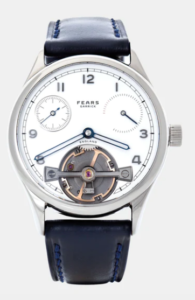
Dating back to the 1840s and re-established in 2016, Fears produces contemporary yet timeless watches. Their Redcliff Date series, for instance, features clean lines, refined designs, and modern proportions, appealing to those with a penchant for minimalist and elegant timepieces. More details of their beginnings are explored in my blog post on watch brand origins.
Founded in 2013, Pinion crafts watches inspired by industrial design, combining classic elements with a modern twist. The Axis II collection showcases a bold and contemporary design language, utilizing high-quality materials and Swiss movements for a distinctive aesthetic.
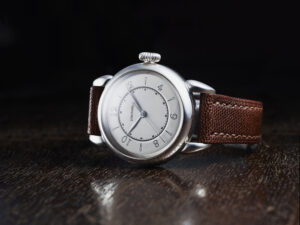
A bespoke watchmaking company, Struthers Watchmakers, creates custom timepieces that merge heritage with contemporary luxury. They blend traditional craftsmanship with modern innovations, offering unique, handcrafted watches tailored to individual preferences.
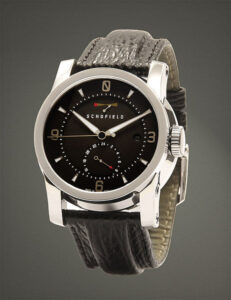
Schofield’s designs focus on British engineering and high-quality materials, resulting in contemporary yet timeless watches. Their models, like the Daymark or the Blacklamp Carbon, exhibit a fusion of innovative design and meticulous attention to detail.
Farer: Alongside their vintage-inspired models, Farer produces contemporary timepieces reflecting modern design and vibrant aesthetics. The Lander II GMT or the Ponting GMT series exemplifies their approach, featuring bold colors, intricate dials, and Swiss movements for a contemporary feel.
Uniform Wares: Renowned for minimalist design, Uniform Wares creates contemporary watches that focus on simplicity and functionality. Their M-line or C-line collections exemplify modernity, combining sleek aesthetics with high-quality Swiss movements.
Garrick Watch Co.: While also featured in the traditional category, Garrick Watches combines traditional British craftsmanship with contemporary design elements. Their S4 and S6 collections feature modern aesthetics, showcasing skeletonized dials, bespoke hand-finishing, and innovative case designs . . .
The Garrick S1 Limited Edition: Garrick’s S1 Limited Edition showcases unconventional craftsmanship, incorporating an exposed balance wheel and escapement on the dial. This avant-garde design, combined with meticulous hand-finishing, creates a unique timepiece that celebrates the art of watchmaking.
Fiona Krüger Chaos Collection: Fiona Krüger, although based in Switzerland, infuses her designs with British-inspired elements. The Chaos Collection showcases skull-shaped watches with intricate details, paying homage to the Mexican festival Dia de los Muertos while offering a truly unconventional take on timekeeping.
MB&F Legacy Machine Perpetual:
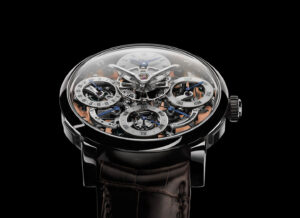
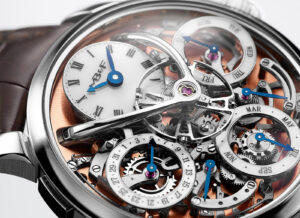
Stephen McDonnell’s innovative perpetual calendar watch, part of MB&F’s Legacy Machine series, reimagines traditional calendar mechanisms. The movement features a unique system with a “mechanical processor” for the perpetual calendar, resulting in an unconventional and visually striking timepiece. They also feature on my blog post about individuality and watchmaking, for obvious reasons, and are a great example of innovative engineering resulting in an aesthetic watch. Would you consider them to be wearable art?
Unconstrainedtime As An Unusually Unique British Micro Brand.
We’re proud to be a British watch brand, continuing the tradition of exceptional quality that some of the best British brands are well known for, while also being a brand focused on unique, innovative and radical designs.
Arguably the first conceptual-art-jewelry based watch brand, our radically minimal time-display allows our watches to be aesthetics-focused, and part of the world of creative art jewelry and fine art as creative exploration by an individual.
Our initial watches are released as relatively small limited-editions (making them ideal collector’s watches), in the same way some fine-artists release small limited-edition prints of their works.
Celebrate your Uniqueness!
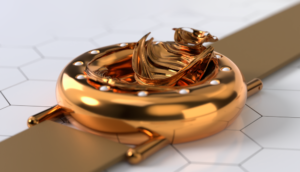
Don’t miss our launch!
. . . make sure you subscribe to our Priority List for notifications.
What do you think of our watches! Let us know in the comments below or on our social media . . . we’d love to know your opinions!

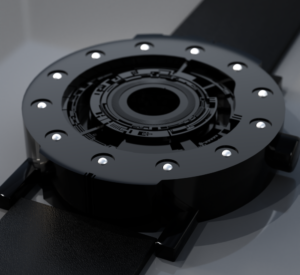
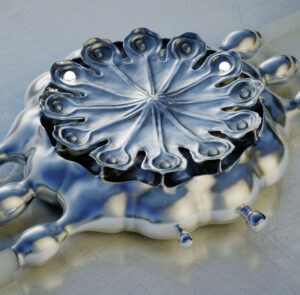
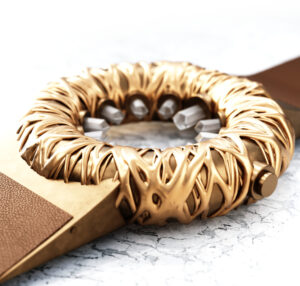
Leave a Reply